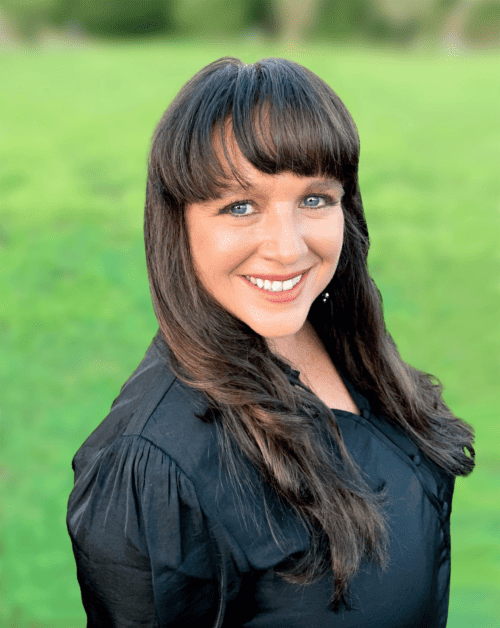An estimated 15 million people struggle with alcohol use disorders in the United States alone, and it can have a serious impact on relationships. In light of April being Alcohol Awareness Month, celebrity divorce lawyer Stacy Phillips has shared her own experience of divorcing an alcoholic – a story which she has largely kept quiet until now.
Phillips is a high-profile family law attorney who has represented high-net-worth and celebrity clients for the past 37 years, including major personalities like Britney Spears. But even her vast experience of hearing the very intimate details of other people’s broken relationships couldn’t have prepared her for the heartache she would experience when she decided to divorce her alcoholic husband, now deceased.
On paper, Phillips, and her ex-husband – a hugely successful attorney himself – were a perfect match. She knew he had struggled with alcohol before they met but had every reason to believe he had gotten the problem under control before they tied the knot.
In the months before they married, Phillips’ soon-to-be husband was away on business, trying a case for Walmart. He came back into town to get married and left again the next day.
“I only saw him once over the course of two or three months, so I didn’t know he was drinking again,” Phillips said.
Alcohol addiction caused successful lawyer to put their lives at risk
However, it soon became apparent that he was drinking all the time, even chugging Listerine.
“He was a very powerful, nationally recognized trial lawyer, but this was one problem he couldn’t seem to solve,” Phillips said.
Her ex-husband went through seven withdrawals during the time they were together – one of which took place on a plane en route to Australia while on their honeymoon.
Phillips recalled him getting behind the wheel of his truck while intoxicated, putting both of their lives at risk. Another time, he had a withdrawal-induced seizure in front of her, leaving her panicked and calling 911.
After the seizure, he was hospitalized for six days. Phillips then checked him into the Betty Ford Center, and she was hopeful for the future. But there was more drinking to come, followed by more withdrawals.
“I thought I could manage it all at first, even when I found him standing at the door with a shotgun,” Phillips said. “I’m Jewish, so I never used the vow ‘in sickness and in health,’ but that’s how I felt about marriage. I wanted to stay with him while he fought this disease.”
However, you can’t help someone who doesn’t want to help themselves. When he continued to cross the line again and again, Phillips said enough was enough. It was time for a divorce.
To this day, Phillips says she doesn’t know the full extent of how often her ex-husband was drinking, or where all of his alcohol hiding places were, noting that “alcoholics are very good at hiding what they’re doing.”
2+1 Intervention Method can help spouses of alcoholics
In the 11 years since the divorce was finalized, Phillips has brought her personal experience with her to every case she has handled.
“I’m very careful not to bring my baggage, but I do have insight that most divorce lawyers don’t have,” Stacy said, adding that she has found a way to use her past for the better good.
“I have a theory that if you go through a really bad experience and don’t learn from it, then it’s just a bad experience. But if you have a bad experience and learn from it, and it can help someone else, then it’s a good experience.”
One of the ways that Phillips is helping other spouses of alcoholics is by sharing the 2+1 Intervention Method (™), which she developed.
The idea of the method is that as the spouse of an alcoholic, you can give your partner one or two chances – max – with interventions and rehab, in an effort to support them getting the help they need. But if that doesn’t work, it’s time to seek an honest intervention on yourself and “get the hell out.”
“If a group of my family and friends had sat down with me to talk about the things that I didn’t see, I would have acted very differently. So, tell your family and friends what’s going on. Don’t try to hide it.”
Find the right attorney and keep your family safe
Phillips believes there needs to be more focus on supporting families of alcoholics, and parents need to remember to attend to their own needs – not just those of their children.
“You know when you’re on an airplane and they tell you that you need to put your own mask on first, before helping anyone else? That’s what you have to do – you have to take care of yourself before you can take care of others.”
Phillips is a big believer in therapy and suggests a large, specialized therapy circle – one for your general issues, an alcohol/addiction specialist for you, and one for the addict. She also says that a therapist for the kids can be very beneficial, and that all of the therapists can even collaborate.
If divorce is the only solution, then Phillips said that getting the right attorney is essential – look for one who is experienced in family law and is kind and empathetic while still able to take charge.
But remember that you, as a client, have to do your part – or else you might find yourself without representation.
“In the end, it’s ultimately the client’s call how they wish to proceed. But I’m not going to watch them circle the drain because they’re not following my advice,” Phillips said, adding that she has an entire chapter on how to choose the right lawyer in her book “Divorce: It’s All About Control.”
Regardless of what the future holds, Stacy says it’s important not to live in despair, but rather to move forward, all while keeping yourself and your family safe.
If you or someone you know is struggling with alcohol addiction, the National Drug and Alcohol Treatment Hotline can provide information and treatment resources. They can be reached 24/7, 365 days a year, at 1-800-662-HELP (4357).






